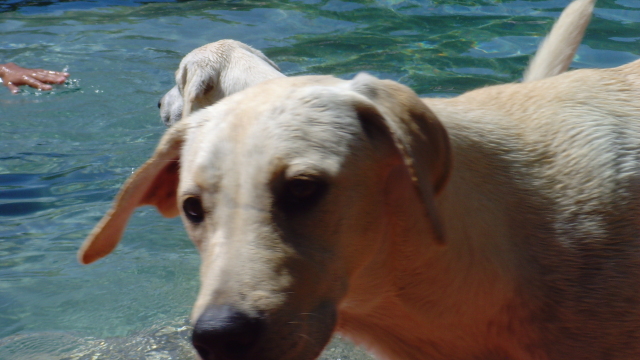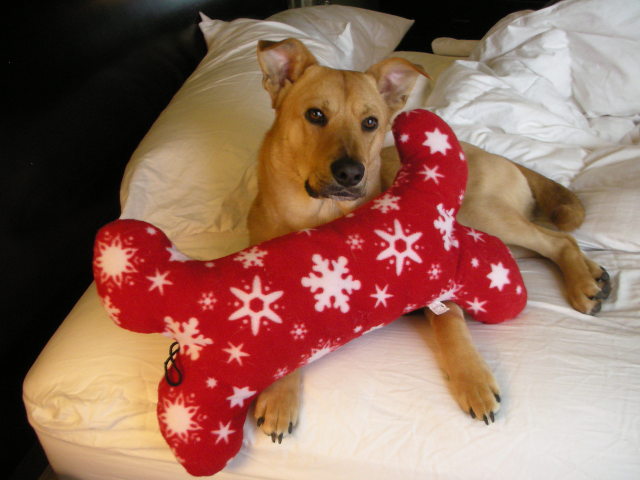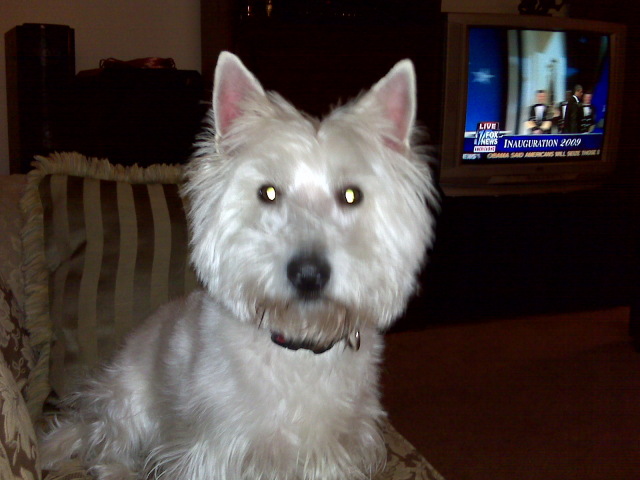QuestionWe have 2 dogs, a 1 1/2 yr old husky and a almost yr old Aussie Shepard. Occasionally they both may get in the trash... but the shepard has a real problem with cat poo too. We have one of the covered dome litter boxes and she still gets in it. My boyfriend claims the fault because he says he has not trained them yet. Tonight he put a baby gate up in our room, locking the dogs in and moving their food in here, so that they could not get into anything. I told him I thought it was counterproductive to do so if he was trying to train them as he says. I disagree with what he has done because how can he discipline the dogs for wrongdoings if he is catering to the dogs and himself. Do you think his moving the food and water bowls and gating the dogs in the room is an acceptable practice??
AnswerAh, Kitty Rocca! Considered a delicacy by dogs all over the world. I have to agree with your boyfriend (to an extent - depending on what he means by "discipline") that management is an important part of training. There are ways to put litter boxes where they are accessable to the cats, but not to the dogs by creating small openings, or putting them up high, and an automatically cleaning box might be useful. Sometimes it is wise to "pick your battles." Is the goal to solve the problem behavior or to discipline the dog for acting like a dog?
The thing is, dogs don't associate things they've done in the past with consequences that happen later. If you can't catch the dog "in the act" they may be sorry that you are upset, but not actually connect your anger or disciplinary action with anything they have done. Especially with self-rewarding behaviors (like raiding cat boxes)it's important to keep the animal from reinforcing themself when you aren't available to train them not to. With self-reinforcing behaviors, management is key to breaking the habit, because when your dog can reward himself when you're not paying attention, he's training himself. Set up training situations where you can work with the dog on "leave-it" - which can be done without punishment. Set the dog up to be successful with what YOU want. That requires being able to pay full attention to the dog, which most of us can't do all the time - especially when we are asleep or not present. Sandy Case MEd, CPDT

 Post bladder surgery potty training for INDOORS!
QuestionTiki
QUESTION: Dear Dr. Connor,
My 10 ye
Post bladder surgery potty training for INDOORS!
QuestionTiki
QUESTION: Dear Dr. Connor,
My 10 ye
 Psychological trauma
Question
Izzy
I recently took my 1 year old dog to a fr
Psychological trauma
Question
Izzy
I recently took my 1 year old dog to a fr
 Nightmares?
Question
Beethoven
Hi Melissa, Ive had my very h
Nightmares?
Question
Beethoven
Hi Melissa, Ive had my very h
 Very Scared Dog
Question
Happy
My dog is 17 months old and is a mixed b
Very Scared Dog
Question
Happy
My dog is 17 months old and is a mixed b
 Companion for Lonley Westie
Question
Shannon
We have a 5-year-old neutered Westie w
Companion for Lonley Westie
Question
Shannon
We have a 5-year-old neutered Westie w